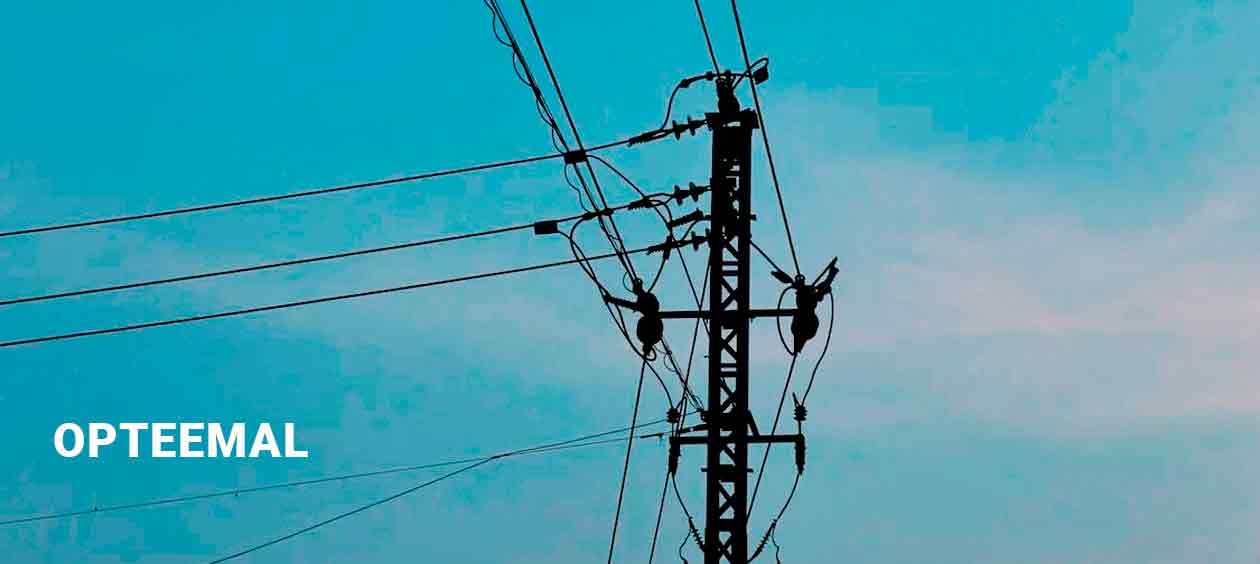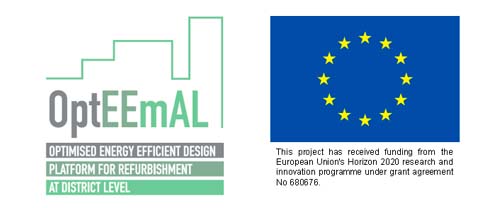The project consisted of developing and validating an Optimised Energy Efficient Design Platform able to design energy efficient retrofitting projects that are based on different energy conservation measures to improve the performance of a district.
- WHAT IS THE PURPOSE OF THE PROJECT?
13 partners from 8 countries worked on delivering an optimised, integrated and systemic design tool for building and district refitting projects with an Integrated Project Delivery approach.
Each project partner provided specific knowledge to meet the aims of OptEEmAL. These partners represented various key stakeholders within the value chain of the retrofitting design process for buildings and districts (research institutions, large industries, small and medium enterprises, including technical offices representing the final user, public authorities, and an exploitation and dissemination/communication expert partner).
As the main result, a platform was developed for the optimized energy-efficient design of refurbishment projects at district level with an IPD (Integrated Project Delivery) methodology-based approach, in which the various stakeholders that form part of the process were involved.
- WHAT WERE THE MAIN ACTIONS?
Through various activities they managed to develop an optimised energy efficient design platform to improve the energy performance of a district.
These activities included:
- Developing a services platform for design which integrates interoperable modules and tools that could provide diagnosis services and generate and optimise scenarios with criteria such as energy, cost, environment or social assessment for data export.
- Reinforcing the commitment of all stakeholders through an integrated project delivery approach that would allow them to articulate their needs through a collaborative, value-based process to deliver high-quality outcomes.
- Creating an integrated ontology-based district data model with key information on energy, comfort, environment, economy, social wellbeing and urban morphology.
- Cataloguing Energy conservation measures, including technical, operational, maintenance and cost information providing outputs for the design and district operation and maintenance stages.
- Developing an optimisation module with the aim of automating the decision-making process to obtain the optimal design for an energy-efficient retrofitting plan at district level.
- Connecting the OptEEmAL platform to relevant entities (existing tools enabling the calculation of indicators to generate and optimize retrofitting scenarios)
To validate the OptEEmAL platform, the platform protype was tested in existing energy efficient retrofitting projects throughout the EU at district level. And in a final stage, the OptEEmAL platform was used to carry out energy-efficient refurbishment design projects for three districts.
Fomento San Sebastián took part with the Txomin-Enea district. The results of the demonstration focused on generating intervention plans. The OptEEmAL project didn’t include their implementation and execution.
- WHO FUNDS THIS?
The OptEEmAL Project was co-funded by the EU as part of the Horizon 2020 programme (GA nº 680676)
- GET TO KNOW THE PROJECT PARTNERS
- Fundación Cartif (Spain)
- Tecnalia (Basque Country)
- Nobatek (France)
- Funitec (Fundació Universitat I Tecnologia) (Spain)
- Technical University of Crete –TUC- (Greece)
- Acciona Infraestructuras (Spain)
- United Technologies Research Centre –UTRC- (Ireland)
- Expert System (Italy)
- Argedor (Turkey)
- Habitech - Distretto Tecnologico Trentino SCARL (Italy)
- Lunds Kommun (Sweden)
- Steinbeis Innovation Gmbh (Germany)
- BOOKLET


